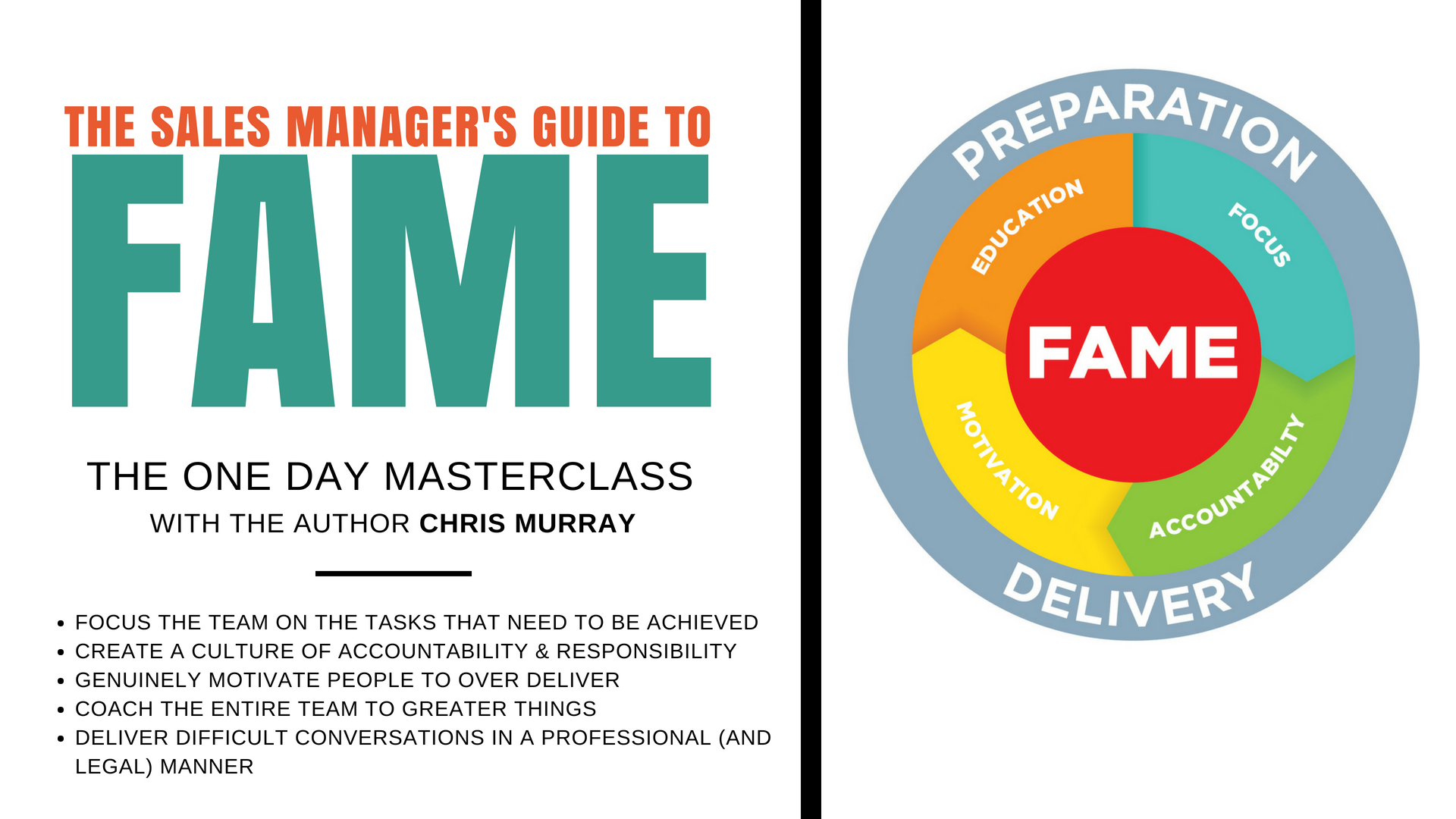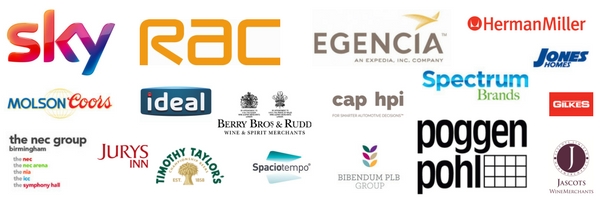The 3 Questions that Every Sales Manager MUST be Able to Answer
One of the quickest ways to turn round the fortunes of a struggling Sales Team is to help them find the answers to the 3 REALLY Big Questions below
 You can always tell when businesses are struggling to hit their sales targets (or are just about to), because when you ask anyone involved in the sales function these 3 questions – and that includes the Management Team as well as the Frontline Sales Bods – the answer you’ll hear most regularly from them is;
You can always tell when businesses are struggling to hit their sales targets (or are just about to), because when you ask anyone involved in the sales function these 3 questions – and that includes the Management Team as well as the Frontline Sales Bods – the answer you’ll hear most regularly from them is;
“It Depends!”
When you point out that “It Depends” isn’t much of an answer – then the response I get is usually something like;
“Listen, you don’t understand Chris – it’s different in our industry – there’s a multitude of things to keep your eye on. That kind of thinking might work in simpler markets – but this is much more complex.”
Hey – when you’ve read the 3 questions below – that might be your response too.
And if you firmly believe that this doesn’t apply to you – well – that’s up to you I guess – but I can promise you this;
If your sales team have a firm understanding of the answers to these 3 questions – a laser-sight vision of what they should be focused on, together with the exact results that they are expected to achieve when that focus is applied – then you’ll find that your business is continuously pointing in the right direction – and that end of year reviews are a lot more productive (and happier) than ever before.
So – what are these three BIG questions?
I’m glad you asked….
#1: The “Big Target” Question
What would the members of your sales team say if you asked them;
“What are you counting – what number matters most this week?”
And what about if you asked the same question to your sales management team – or how about The Board of Directors?
I’m fairly sure your business wants to get to somewhere very specific by the end of this financial year – there might be a profit figure, or a turnover target, or an aspiration to reach a certain position in your category – but someone very important wrote down a big number at the beginning of the year – and the shareholders want to see that number get hit.
So if you ask a salesperson what they have to achieve this week – it depends – doesn’t help.
Sometimes you get an answer that relates to the big figure but doesn’t really hold the salesperson truly accountable – something like;
“I’ve got to call 15 prospects a day”
Which is kind of like telling Usain Bolt that all he has to do is stride 57 times as fast as he can.
For the record Usain Bolt covered 100m – in 41 steps – in 9.58 seconds
But fifteen calls is not the actual target – neither is the number of steps in a 100m race – the number of calls is not the figure in the chairman’s office.
Your team should know what they are truly responsible for – and then they should ensure that they deliver that to the business.
#2: The “Ideal Customer” Question
What does your ideal customer look like?
“It Depends” – OK – what does it depend on?
The size of the company, the potential profit contribution, the entire opportunity, the geography, the human demographic?
You have a limited amount of time to find the right people who will help you hit your big number.
On the other hand, you do not have enough time to waste on people who simply aren’t interested in what you have to offer – or are unable to put enough business your way to keep you afloat.
Your team should know exactly what their perfect business partner looks like – and they should be spending every precious second talking to people just like that.
#3: The “Spend” Question?
How much time do you give to turning over each opportunity – or maybe a better question is – how much time have you got?
Time is one of the resources that you have available to “Spend” – but everything that you can spend is always, eventually “Spent“.
Time is not limitless – most people work around 40 hours per week – and something like 46 weeks in a year – to achieve whatever it is they’re trying to achieve.
If you need an average of 92 customers to hit your target, then you need to be converting 2 every week.
If each prospect takes up 4 hours of your time in total – you only have enough time to see 10 – that means your conversion rate has to be 1 in 5.
If you’re spending more than that – you won’t hit target.
Let’s look at the other obvious thing you can spend – Money.
How much profit would your ideal customer be worth?
Would it cover the cost of a £10 book to become better at prospecting, negotiating or account management?
Would a single new client cover the cost of attending an appropriate sales training workshop?
Would the profit a new client generates warrant their own Pay Per Click campaign designed to win one prize prospect?
What is your next new customer worth with regards to investment – money, time, effort – and is that the investment we’re giving each opportunity?
So, if you your team think “It Depends” answers those 3 questions adequately – just double check that they aren’t simply covering up for the fact that they’ve not really given this subject enough thought.
You see, I think that certain questions are just too important for “It Depends” – stuff like;
“Would you like to be able to feed your family tomorrow?”
“Would you like to avoid a terrible disease?”
“Did you definitely lock the front door before we went on holiday?”
And if you are in charge of a business – or even in charge of part of it – for me, the vital questions have to be;
What’s THE most important number we have to hit?
WHO should we be talking with to make sure that number gets hit?
HOW MUCH resource are we going to hit it with?
And I don’t think it would be unreasonable to expect everyone in your sales team – but especially their manager – to be able to answer every one of those with the facts and figures they deserve.
****************************************************
UK Workshops
LONDON | MANCHESTER
(click on preferred city for full details)

Our Sales Management Open Workshops show you how to piece together the four main elements of successfully managing a team – Focus; Accountability; Motivation; Education – and show you how to get the best out of everyone involved.
At the end of this workshop delegates will be able to:
- Work out how to focus on the real tasks that need to be achieved – and find a way to ensure every member of their team is doing that too.
- Create a culture where every member of the team understands that they are accountable and responsible for their own success – and recognise exactly what that makes them accountable for.
- Genuinely motivate people to over deliver -and even more importantly – learn how to make sure you don’t demotivate them.
- Coach the entire team to greater things – learn how to give them a net of their own rather than continuously feeding them individual fish.
- Feel competent and confident enough to conduct staff discipline in a professional (and legal) manner.
LONDON | MANCHESTER
(click on preferred city name for full details)



